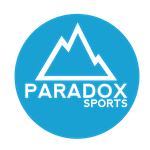One of the key points all of our authors have made this month regarding physical activity and nutrition is that every person has a unique set of likes and dislikes. Creating physical activity and nutrition plans that incorporate these likes can help ensure proper levels of physical activity and nutrition are attained in the most fun, fulfilling ways possible. As individuals, it is important that we determine what our specific likes are so that we can incorporate them and promote our own physical and mental wellness on a daily basis. And as professionals, it is important that we learn to help others identify and incorporate their own likes.
Need help combining your unique likes with appropriate physical activity and nutrition? Our Information Specialists can help. You can reach out to them via phone, email, or web chat.
News Room

![]() SPARK Joins Forces with Let’s Move! Active Schools as Official Supporting Organization
SPARK Joins Forces with Let’s Move! Active Schools as Official Supporting Organization
SPARK is a collection of research-based Physical Education, After School, Early Childhood, and Coordinated School Health programs for educators serving Pre-K through 12th grade students. SPARK is one of the first organizations to support the Let's Move! Active Schools initiative by working directly with schools and districts to provide its resources and programs which support the inclusion of physical activity throughout the school day. Click to view the PRESS RELEASE.
Paradox Sports Teams up with The North Face
April 16: Earth Treks (Golden, CO) – Special guest, The North Face, is attending to make a short film to promote adaptive climbing and other sports. Click to download a FLYER about the event.
The Front Range Adaptive Climbing Club meets three times per month at various locations throughout Colorado. The program caters to all ages, abilities and experiences, from beginner to expert. For more information on the program, visit: http://paradoxsports.org/climbing-club/.
 Paradox Sports seeks to recognize and foster an individual’s potential and strength, defying the assumption that people with a physical disability can’t lead a life of excellence. They provide inspiration, opportunities and specialized adaptive equipment so that anyone is able to be an active participant in human-powered sports.
Paradox Sports seeks to recognize and foster an individual’s potential and strength, defying the assumption that people with a physical disability can’t lead a life of excellence. They provide inspiration, opportunities and specialized adaptive equipment so that anyone is able to be an active participant in human-powered sports.
Conferences
American College of Sports Medicine's (ACSM) 61st Annual Meeting
- http://www.acsm.org/attend-a-meeting/2014-annual-meeting
- May 27-31
- Orlando, Florida
- This comprehensive meeting will feature presentations, demonstrations, and other activities highlighting all the latest in physical activity, exercise science, public health, and much more.
National Americans with Disabilities Act (ADA) Symposium
- http://adasymposium.org/
- June 15-18
- Denver, Colorado
- The symposium features keynote speeches and breakout sessions covering a wide range of topics related to the ADA.
American Association on Intellectual and Developmental Disabilities' 138th Annual Meeting
- http://aaidd.org/education/annual-conference#.U0wMu_ldXMM
- June 23-26
- Orlando, Florida
- The AAIDD annual meeting is one of the largest gatherings of researchers, practitioners, educators, advocates, and others to share and discuss the latest in research, practices, policy initiatives, and so much more.
North American Federation of Adapted Physical Activity 2014 Symposium
- https://sites.google.com/site/nafapaorg/conference
- October 16-18
- University of Michigan—Ann Arbor, MI
- This year’s NAFAPA Symposium will be centered around the concept of “Generating New Scientific Knowledge in Adapted Physical Activity to Benefit Individuals with Disabilities.” If you are a practitioner or programmer, the vast number of sessions should provide you with invaluable information to bolster your programs and other efforts going forward. If you are a researcher contributing to the field, this represents an excellent opportunity to get your knowledge into the hands of those who need it and will put it into practice the most. Registration and submission information is available through the website. Abstracts are due by June 1.
Webinars
Autism Spectrum Disorder: From Numbers to Know-How
- http://1.usa.gov/1gCZY5U
- Tuesday, April 22nd
- 1-2pm EDT
- This webinar will provide several expert opinions and discussions surrounding diagnosing and understanding the numerous complexities surrounding ASD.
The State of Health and Wellness for Individuals with Intellectual and Developmental Disabilities
- http://bit.ly/1t1WgMW
- Wednesday, April 23rd
- 1-2pm CDT
- Learn about some of the recent initiatives and strategies that have been created and employed to help encourage and promote healthier lifestyles for people with intellectual and developmental disabilities.
Disability Inclusion Strategies
- http://conta.cc/Q7K8uC
- Thursday, May 8th
- 2-3.30pm EDT
- Representatives from multiple companies discuss their best practices for disability inclusion.
